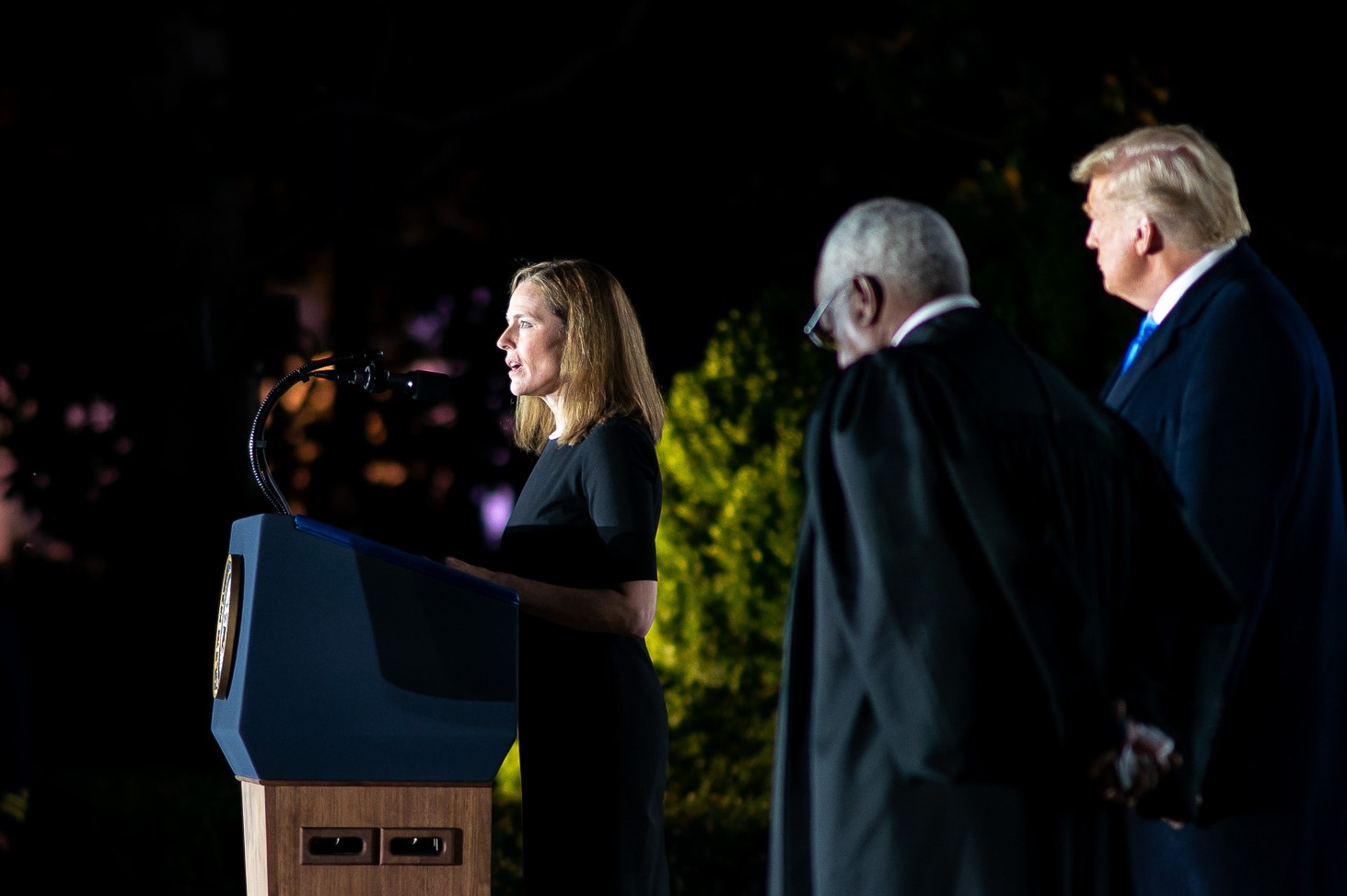(The Stream) We were told it was impossible, that Roe v. Wade was carved in stone — a “super-precedent” endorsed by all our country’s elites that liberal senators would ensure stayed in place forever by Borking every likely pro-life appointment to the U.S. Supreme Court.
When I joined the pro-life movement at age 11 — freaking out my parents by going door-to-door collecting signatures for the New York State Right to Life Party — I imbibed that same learned helplessness. We were advocates of a hopeless cause, like trying to number the grains of sand on a beach, but it was our duty at least to try. We could stand outside abortion clinics, convincing one mom or two to reconsider the value of her unborn baby’s life. We might impose waiting periods, or perhaps parental consent, or even ban gruesome late-term procedures on fully viable babies. Some of us would lock ourselves to the gates of clinics and go to jail for it.
[Click here to subscribe to Pregnancy Help News!]
But the great monstrosity that liberal judges had pretended to find in our Constitution, the “privacy” right that permitted abortion in 50 states no matter what voters had to say about it, was there to stay. For 50 years of my life, our courts and law schools have pretended that women could do what they want with their bodies as long they didn’t take illegal drugs, sell themselves for sex, or work at less than the minimum wage. It never made any sense.
But our entire system pretended that it did, and much of the GOP played along. Bad advisors to Ronald Reagan lied to him about the views of men like Anthony Kennedy and David Souter, and convinced him he had to appoint Sandra Day O’Connor to the Court. Republican senators like Lindsay Graham routinely voted to confirm rabidly pro-abortion justices based purely on their “scholarly credentials,” while Democrats (correctly) grilled appointees on which way they might rule on crucial issues.
President Donald Trump changed all that. He didn’t fold like a cheap tent when Christine Blasey Ford perjured herself with a story about a rape attempt that never happened at a party which never occurred that SCOTUS nominee Brett Kavanaugh didn’t attend. Any other Republican president of our lifetime, except perhaps Ronald Reagan, would have caved and withdrawn Kavanaugh’s name. Another Republican likely would have been spooked by Amy Coney Barrett’s large family and strong ties to a fervent Catholic group the media called a “cult.” Not Trump.
While he has been far from perfect on life issues (see IVF), Trump accomplished what virtually all of us in the pro-life movement considered a pipe dream: cutting out the cancer that was Roe v. Wade from the body of constitutional law. Now Barrett has published a book explaining how that happened with its judgment in Dobbs v. Jackson. CatholicVote reports:
In her forthcoming memoir, Supreme Court Justice Amy Coney Barrett defends the landmark 2022 decision that overturned Roe v. Wade, calling the 1973 ruling an “exercise of raw judicial power” that invented a constitutional right to abortion.
In Listening to the Law: Reflections on the Court and Constitution, Barrett, a Catholic, argues that Roe had no grounding in American history or law and that abortion “had long been forbidden” in the nation’s legal tradition.
CNN was granted early access to the memoir. It reports:
Barrett, who joined the majority opinion by Justice Samuel Alito, makes clear in the book that she believes the court had no business declaring abortion a constitutional right in the first place. (Two of the other justices in the majority wrote separate statements, but Barrett declined at the time.)
She picks up Alito’s line from Dobbs that Roe v. Wade amounted to an “exercise of raw judicial power.” She echoes his view for the majority that the court’s usual adherence to precedent could be rejected because Roe was wrongly decided.
Elaborating in her book, Barrett contends the right to end a pregnancy was never deeply rooted in US history as were other implicit constitutional rights: “The evidence does not show that the American people have traditionally considered the right to obtain an abortion so fundamental to liberty that it ‘goes without saying’ in the Constitution. In fact, the evidence cuts in the opposite direction. Abortion not only lacked long-standing protection in American law – it had long been forbidden.”
Tweet This: Barrett makes clear in the book that she believes the court had no business declaring abortion a constitutional right in the first place.
Critical as I have been of Barrett for some of her other judicial opinions, I might go read her book. Learning about it, I know what I absolutely am going to do: reread Justice Samuel Alito’s masterful ruling in Dobbs that comprehensively dismantles the cobbled-together decisions in Roe v. Wade and Casey v. Planned Parenthood, then go say a prayer of thanks for what Trump made possible.
We still have much work ahead, and that entails applying pressure from the right on Trump and his team until all 50 states protect the innocent.
Editor's note: This article was published by The Stream and is reprinted with permission. Barrett was scheduled to launch her book at a Reagan Presidential Foundation event in Simi Valley, California, September 9, 2025.





